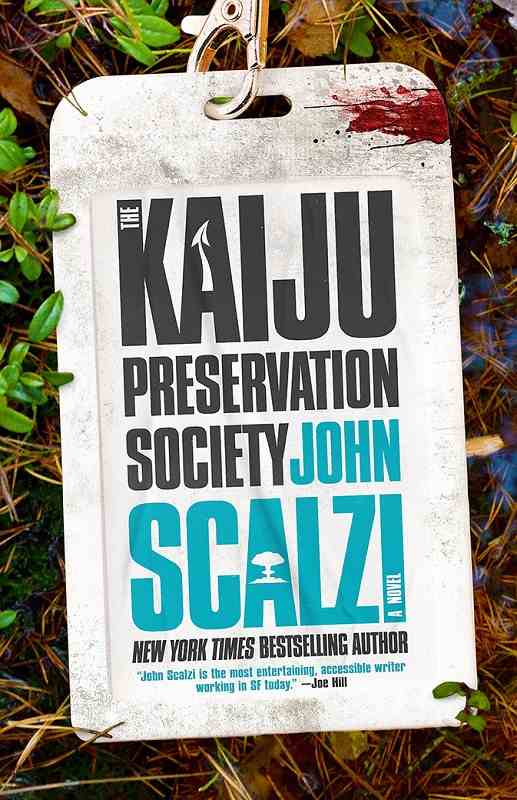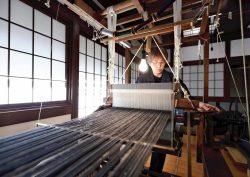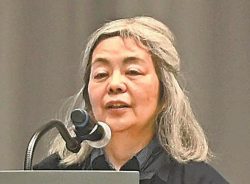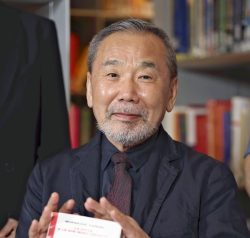
13:25 JST, April 12, 2022
Some Japanese friends were surprised when I mentioned that I was reading American author John Scalzi’s latest science fiction novel. What startled them was a seemingly Japanese word in the title: “The Kaiju Preservation Society.”
But kaiju — like judo, haiku and origami — is a Japanese word that has found a second home in English. The dictionary website of Oxford University Press, Lexico.com, defines a kaiju as a “giant monster of a type featured in Japanese fantasy and science fiction films and television programmes.”
Earlier this year, Disney animator Benson Shum even published a children’s picture book called “Anzu the Great Kaiju,” introducing the very youngest readers to the word.
As for “The Kaiju Preservation Society,” narrator and main character Jamie Gray doesn’t realize he is signing up to work with giant monsters when he accepts a job with the book’s titular “animal rights organization.”
Then his new employer sends him to a parallel world where evolution has followed a rather different path than it did on our version of Earth. There are familiar plants and insects and even frogs, but there are also venomous man-eating tree crabs and mountain-sized kaiju that have organic nuclear reactors inside of them and panther-sized parasites all over them.
All of this is new to Jamie, which gives his coworkers plenty of opportunities for expository dialogue as they bring him, and the reader, up to speed. But pay attention: Some of the colorful world-building details that seem to be thrown in just for fun turn out to be significant for plot developments later on.
One of the first things Jamie learns is that the dimensional barrier between our Earth and Kaiju Earth was first breached accidentally in a nuclear weapons test.
Breaching the fourth wall is much simpler. All it takes is an authorial wink. And Scalzi does a lot of winking.
For instance, part of the mission of the Kaiju Preservation Society is to keep humans from driving the big beasts to extinction, as we have done with so many species in our own world. This leads one character to rhetorically ask who the real monsters are, to which Jamie replies: “They ask that question in every monster movie, you know. It’s an actual trope.”
With that trope in mind, the scariest character in this book is not the skyscraper-tall creature with wings, tentacles and multiple eyes that migrate around the surface of her body — although she does indeed play a major role in the story.
No, the truly scary one would be the gig-economy billionaire who uses bullying and manipulation to force desperate workers to do his bidding. Or as he modestly puts it, “I just understand people.”
Not surprisingly, this character sees the uncanny colossi of Kaiju Earth as assets to exploit for his own financial gain. Even less surprisingly, his plan goes very badly.
But Scalzi, an author known for stories both amusing and technically creative, merely aims to exploit the kaiju for their entertainment value. And his plan goes quite well.
Top Articles in Culture
-

BTS to Hold Comeback Concert in Seoul on March 21; Popular Boy Band Releases New Album to Signal Return
-

Director Naomi Kawase’s New Film Explores Heart Transplants in Japan, Production Involved Real Patients, Families
-

Tokyo Exhibition Offers Inside Look at Impressionism; 70 of 100 Works on ‘Interiors’ by Monet, Others on Loan from Paris
-

Traditional Japanese Silk Hakama Tradition Preserved by Sole Weaver in Sendai
-

Exhibition Featuring Yoshiharu Tsuge’s Manga World Underway in Chofu, Tokyo; Unique, Surreal Works Draw Steady Crowds
JN ACCESS RANKING
-

Producer Behind Pop Group XG Arrested for Cocaine Possession
-

Japan PM Takaichi’s Cabinet Resigns en Masse
-

Man Infected with Measles Reportedly Dined at Restaurant in Tokyo Station
-

Israeli Ambassador to Japan Speaks about Japan’s Role in the Reconstruction of Gaza
-

Videos Plagiarized, Reposted with False Subtitles Claiming ‘Ryukyu Belongs to China’; Anti-China False Information Also Posted in Japan























